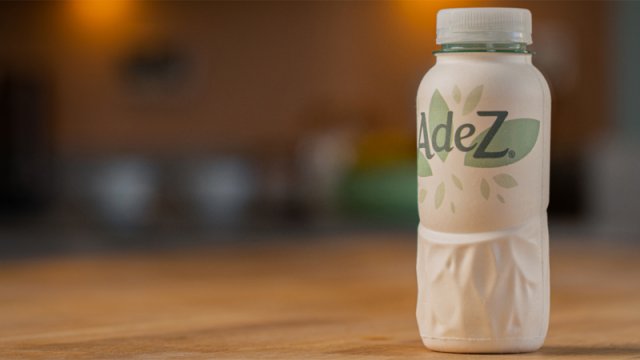
- Sustainable Planet -
- 6mins -
- 747 views
Coca-Cola Unveils New Sustainable Paper Bottles
Sustainable packaging alternative moves from lab to market as global beverage manufacturer begins trials with an online retailer in Hungary for their paper bottle prototype.
Paper bottle trials to begin in Hungary
The Coca-Cola Company has announced that its first-ever paper bottle prototype is transitioning from the lab to the marketplace this summer through a limited online trial in Hungary. A run of 2,000 bottles of the plant-based beverage AdeZ will be offered in the pioneering package via e-grocery retailer Kifli.hu.
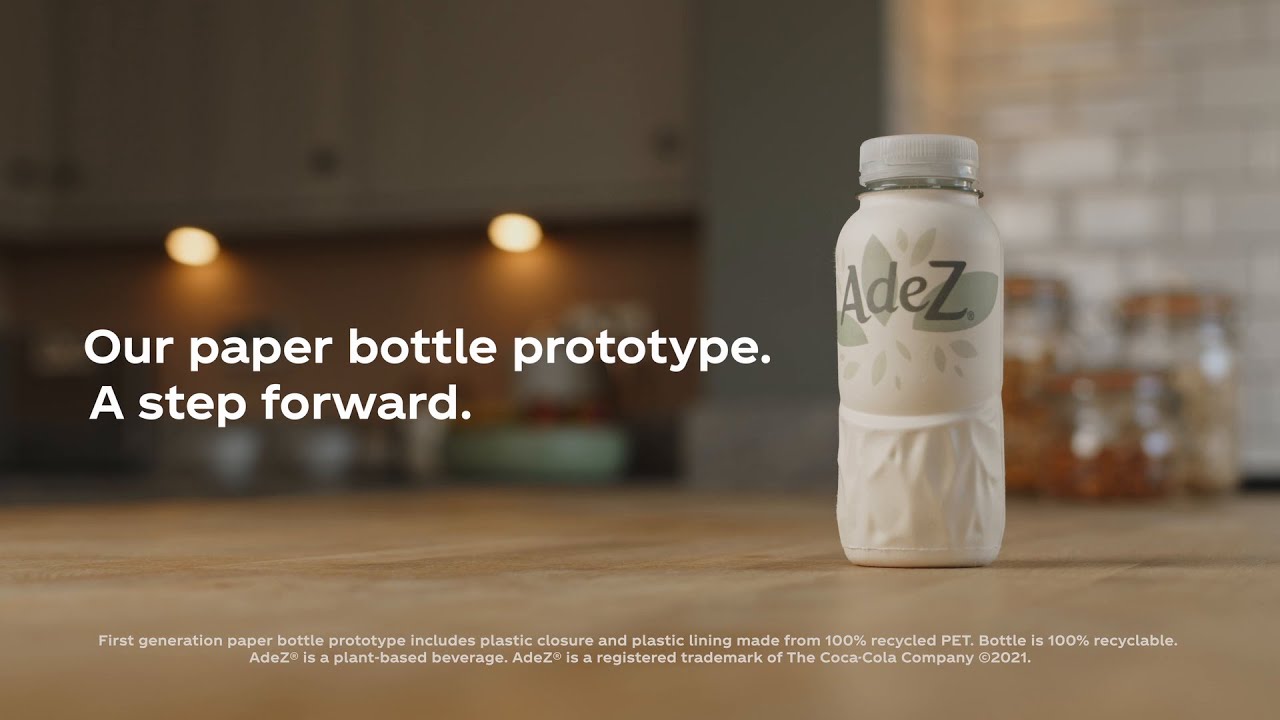
The ultimate goal is a bottle that can be recycled as paper.
Coca‑Cola’s paper bottle project is moving into the consumer testing phase to measure the package’s performance and shopper response to the format. Coca-Cola and Paboco unveiled the first-generation prototype, which consists of a paper shell with a recyclable plastic lining and cap, last autumn.
“The trial we are announcing today is a milestone for us in our quest to develop a paper bottle,” said Daniela Zahariea, director of technical supply chain and innovation, Coca‑Cola Europe. “People expect Coca‑Cola to develop and bring to market new, innovative and sustainable types of packaging. That’s why we are partnering with experts like Paboco, experimenting openly and conducting this first in-market trial.”
The technology developed by Paboco is designed to create 100% recyclable bottles made of sustainably sourced wood with a bio-based material barrier capable of resisting liquids, CO2 and oxygen, and suitable for beverages, beauty products and other liquid goods. The ultimate goal is a bottle that can be recycled as paper.
Coca-Cola say the innovation supports the company’s World Without Waste sustainable packaging goal to collect and recycle a bottle or can for every one it sells by 2030, while substantially reducing use of virgin packaging materials and using only 100% recyclable packaging materials. Achieving this vision requires investment in innovation and collaboration with partners to drive collection, recycling and sustainable design.
Stijn Franssen, R&D packaging innovation manager for Coca‑Cola Europe, stresses that the breakthrough technology is still in development. Franssen’s team has been conducting extensive lab testing to assess how the paper bottle performs, holds up and protects its contents.
“This is new technology, and we are moving in uncharted territory,” he explained. “We have to invent the technical solutions as we go along.”
The paper bottle project is being co-developed by Coca‑Cola’s R&D team in Brussels and The Paper Bottle Company (Paboco), a Danish startup supported by ALPLA and BillerudKorsnäs, in cooperation with Carlsberg, L’Oréal and The Absolut Company.
Source: Coca-colacompany.com
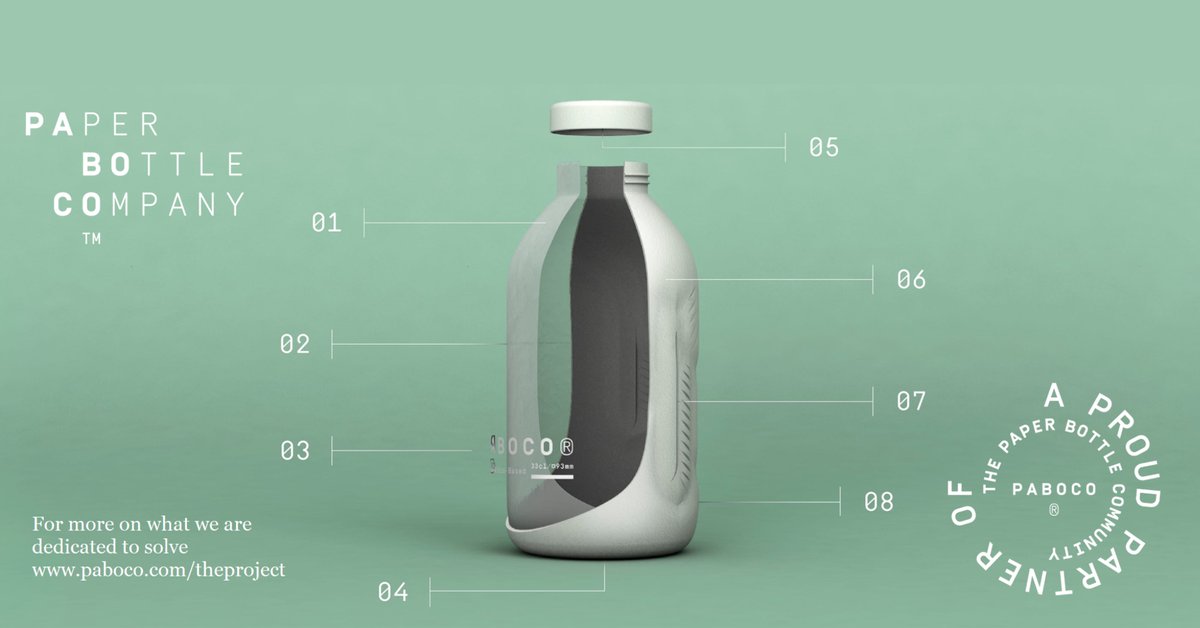
Coca-Cola partners with Danish startup Paboco to develop 100% paper bottle
“Our vision is to create a paper bottle than can be recycled like any other type of paper, and this prototype is the first step on the way to achieving this,” says Stijn Franssen, R&D packaging innovation manager, Coca-Cola EMEA. “A paper bottle opens up a whole new world of packaging possibilities, and we are convinced that paper packaging has a role to play in the future.”
The first-generation prototype consisted of a paper shell with a 100% recycled plastic closure and liner inside. The next step, says Franssen, was to create a paper bottle without the plastic liner.
Franssen’s team conducted extensive lab testing at The Coca-Cola Company’s Brussels-based R&D center to assess how the paper bottle performs, holds up and protects its contents while refrigerated and in other scenarios.
“We also reflect on how our consumers will react to this paper bottle,” Franssen adds. “Topics like when and where it could be sold and how it can be recycled are all considered. This is all part of our journey to find the most sustainable packaging solutions for people to enjoy our drinks in a way that is right for them, and that is right for our planet.”
Paper bottles – which Paboco believes have potential for use with sparkling and still beverages, and other consumer goods sectors such as cosmetics – must adhere to the same stringent safety and quality standards as other food and beverage packaging.
Source: Coca-colacompany,com
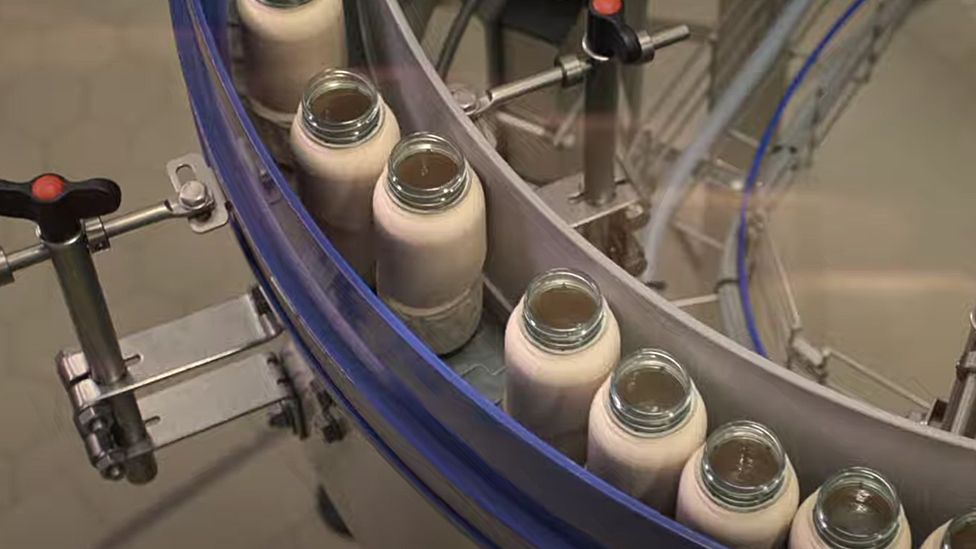
Is this a Potential Breakthrough in Packaging Circularity?
Michael Michelsen, business development manager at Paboco, said the project is still in its initial stages of development. “We’re focused on several different development areas, which all tie back to our vision of creating a 100% recyclable and bio-based bottle,” he said. “This has potential to be a real breakthrough in circularity for the industry, unearthing huge potential in how packaging is designed, produced and used by consumers.”
Michelsen added, “Changing an industry requires progress in increments and a push for sustainable change. The paper bottle concept remains a work in progress, and being able to truly evolve and scale to meet producer and consumer demand is one of the critical challenges to overcome.”
Coca-Cola is among a small group of “pioneer” companies – with expertise in beverage production and marketing, as well as packaging material, design and technology – working to explore the paper bottle concept with Paboco (short for The Paper Bottle Company).
“The Pioneer Community is a natural next step to fulfill our goal of making a lasting change, by working with and learning from international brands to ensure that our innovations match the real-life needs of producers and consumers,” Michelsen said. “We believe that forming the community will help provide the much-needed insight and guidance to help further develop a concept that has potential to scale. We also believe that it can help us solve technical challenges, build on shared learnings in development, and positively push us all forward.”
Coca-Cola say the paper bottle concept supports the company’s World Without Waste sustainable packaging goal to collect and recycle a bottle or can for every one it sells by 2030, while substantially reducing use of virgin packaging materials and using only 100% recyclable packaging materials. Achieving this vision will require more investment in innovation and collaboration with partners to drive collection, recycling and sustainable design.
Source: Coca-colacompany,com
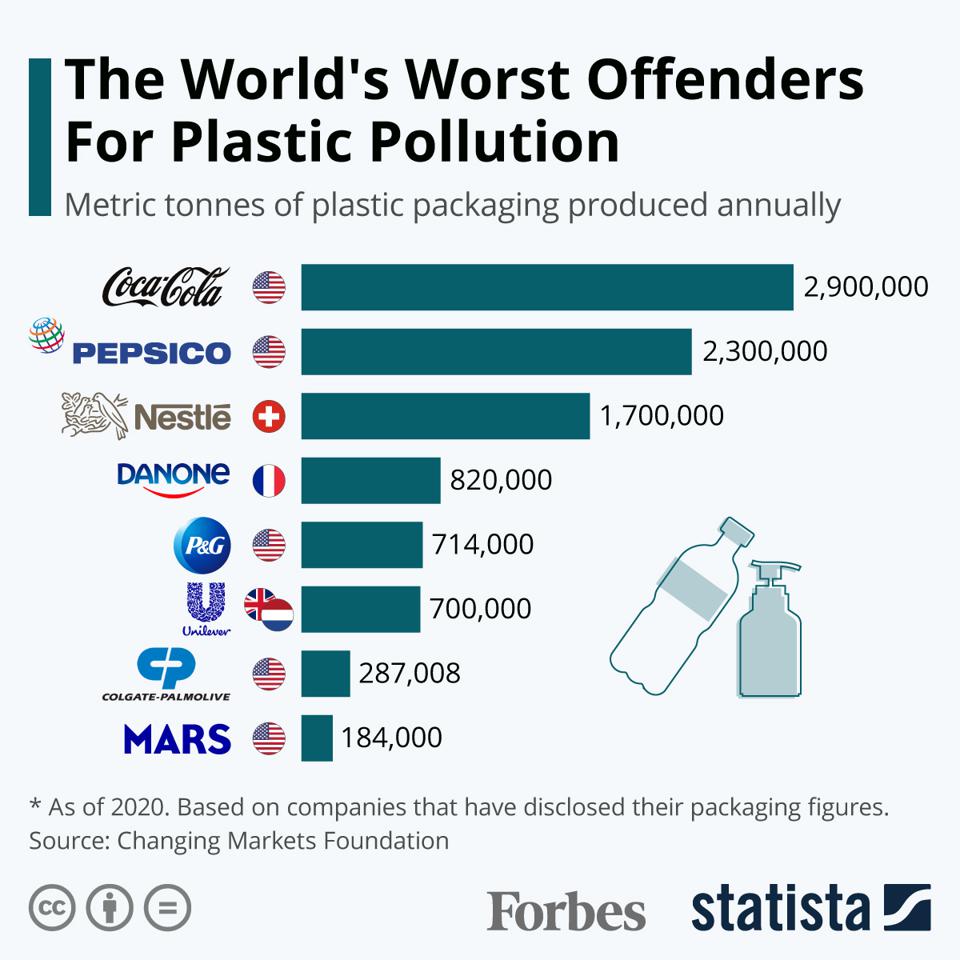
Coca-cola is the company with the biggest plastic footprint on the planet
Last November, a report published by the Changing Markets Foundation shed light on the world’s worst companies for plastic pollution, along with the steps they are taking to obstruct and undermine legislative solutions aimed at tackling an unprecedented plastic waste crisis.
Entitled "Talking Trash: The Corporate Playbook of False Solutions", the report’s findings are based on industry research in over 15 countries across five continents. It is highly critical of voluntary commitments from the planet’s biggest plastic producers which are being used as a delaying and derailing tactic that is distracting governments and consumers with empty promises and false solutions.
For example, it outlines how the industry in the U.S. has successfully shifted the blame for plastic pollution to consumers and authorities while recycling is being promoted as a convenient excuse to produce even more plastic. In Europe, it analysed how the industry has attempted to weaken and delay the EU Plastics Strategy and the EU SUP Directive.
In Asia, the report explored China’s major policy moves which are being undermined by low corporate action while it outlined how people in Japan remain blissfully unaware of how their plastic waste is incinerated or exported. South America was lambasted for brazen industry lobbying while in Africa, Kenya is being suffocated by plastic waste pushed by companies seeking grow their business on the continent.
So who are the world’s worst offenders for plastic packaging production and pollution?
- The report names Coca-Cola KO +1.9% as the company with the biggest plastic footprint on the planet with 2.9 million metric tonnes of plastic packaging produced per year.
- Its biggest competitor, Pepsico PEP +1.1%, comes second with 2.3 million metric tonnes
- while Nestlé is the third-worst offender with 1.7 million metric tonnes of plastic packaging produced.
Five of the eight companies with the biggest plastic footprint are American with Nestlé (Switzerland), Danone (France) and Unilever (United Kingdom/Netherlands) the exceptions. The report only focused on companies that actually report levels of plastic packaging produced with Mondelēz and Perfetti Van Melle notably absent from that list.
Source: Forbes

